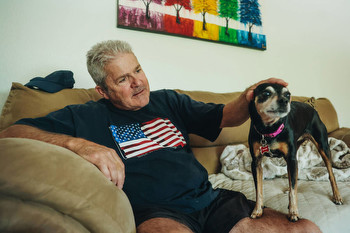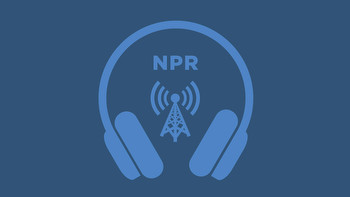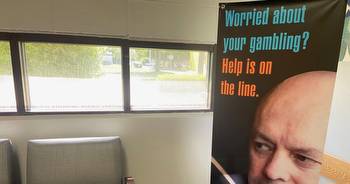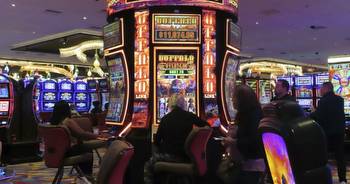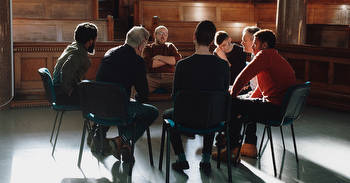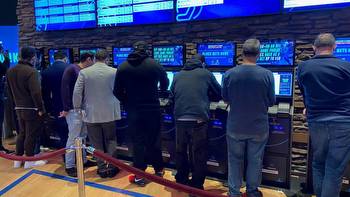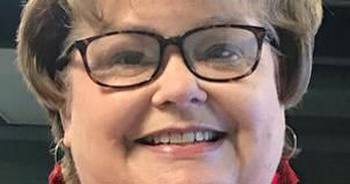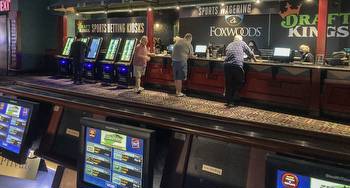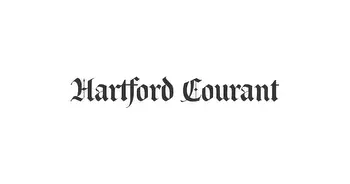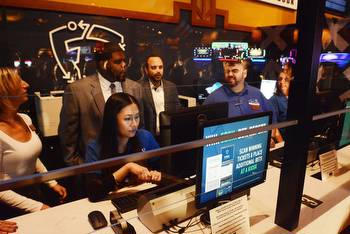Mohegans announce support for Yale plan to combat problem gambling
Mohegan — Mohegan Sun’s tribal owners announced Tuesday that over the next five years they will invest $2 million in the Yale School of Medicine’s ongoing development of an app-based program aimed at treating problem gambling through a process known as cognitive behavioral therapy.
The announcement came at a news media event at the Mohegan Community and Government Center on Crow Hill Road.
“This will revolutionize the treatment of problem gambling,” said Ray Pineault, president and chief executive officer of Mohegan Gaming & Entertainment, the casino's corporate parent.
Pineault and Mohegan tribal leaders were joined by Yale School of Medicine officials, the executive director of the National Council on Problem Gambling, the president and CEO of the American Gaming Association and representatives of Gov. Ned Lamont’s administration.
The Mohegan Tribe’s investment represents part of its response to the 2021 legislation that legalized online casino gaming and sports betting in the state. The tribe also has increased its $300,000-a-year contribution to the Connecticut Council on Problem Gambling, and has contributed more than $10 million to problem-gambling programs and services since Mohegan Sun’s 1996 opening, Pineault said.
Proven effective in the treatment of depression, anxiety and other mental health conditions, including substance abuse, cognitive behavioral therapy, commonly known as CBT, has yet to be applied to gambling addiction.
Brian Kiluk, an associate professor of psychiatry at the Yale School of Medicine, said the Mohegan investment will enable Yale researchers to adapt a computer-based CBT program a Yale team developed years ago to treat substance abuse and dependence. Kiluk, a member of that team, said a goal of an app-based program designed to treat problem gambling will be to reach underserved populations.
A form of talk therapy, CBT deals with patterns of thinking and beliefs and seeks to help people recognize the “triggers” for their problematic behavior and strategize ways to avoid them.
“Using digital platforms, such as mobile phones, to provide treatment offers the potential to get help to more people,” Kiluk said. “The hope is to identify new ways to expand access to treatment as easily and seamlessly as possible and provide a means to help improve the lives of people with gambling problems, their loved ones and their communities.”
Kiluk said the project will include rigorous clinical trials and peer reviews of data to ensure the eventual product is safe and effective.
Pineault said Kiluk and Marc Potenza, co-director of Yale’s Center of Excellence in Gambling Research, approached tribal leadership about supporting their research.
In the last year or so, Yale and the tribe partnered on the opening of the Uncasville Medical Center at Mohegan Sun, a neighborhood-style clinic serving Mohegan tribal members, employees and the public, and pooled their resources to operate mass COVID-19 testing and vaccination sites at the casino.
While the increase in focus on and funding for problem-gambling initiatives comes following the introduction of new forms of gambling in the state, Pineault said the app-based program Yale is developing will be useful in the treatment of people who have a problem with any form of gambling.
Paul Mounds, the governor’s chief of staff, said the state’s approval of expanded gambling came with an understanding that gambling operators would increase their investment in problem-gambling awareness and prevention. In addition to the Mohegans, he said the Mashantucket Pequot Tribe, which owns Foxwoods Resort Casino, and the Connecticut Lottery Corp. are doing so, each in its own way.
Bill Miller, president and CEO of the American Gaming Association, a trade group representing U.S. casinos, said the Mohegan-Yale collaboration was “an important step forward” in the response to problem gambling. In his three years as AGA president, he said, he’s been struck by the dearth of academic research in the area.
“It takes time and rigor,” he said. “The (Yale) research will benefit people in this state and beyond to everyone who gambles.”
Keith Whyte, executive director of the National Council on Problem Gambling, said a 2016 study found that less than 1% of the 6 million people in the country identified as having a gambling problem got treatment. The emergence of telehealth and the promise of the app-based CBT program offer hope, he said.








